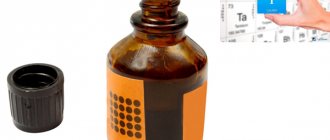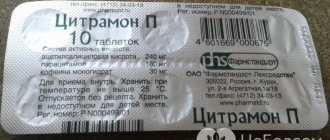An overdose of valerian sounds, at first glance, even funny. An overdose usually happens with sleeping pills, antidepressants, some powerful heart medications... But harmless valerian!
It is sold in pharmacies for mere pennies, is stored in almost every Russian apartment, and in general, it is an ordinary herb, albeit a medicinal one. But it's not that simple. If you take a sedative for months, and even experiment with the dose, even valerian can cause serious side effects and poisoning.
How to take the product
How many drops of valerian do you need to take for a quick calming effect to develop? This question is asked by many people who experience problems with the nervous system. Maximum single dose – 50 drops
, dissolved in a small amount of liquid. The tincture is taken up to three times a day. An overdose of this amount of medicine in adults is impossible.
How to take valerian tablets? Since the effect of the drug does not develop quickly, the drug is not suitable for emergency use. If we talk about how many valerian tablets an adult needs per day, then the maximum amount is allowed up to 8 pieces in 4 doses. Usually 2 or 3 tablets of valerian are prescribed at a time.
.
The problem often arises: how to drink valerian in briquettes correctly? This preparation is a dry compressed plant material. It is boiled or infused for 30 minutes; the exact method of preparation is always indicated on the package. You need to drink at least 100 ml of prepared liquid at a time. During the day, up to 300 ml of solution is allowed orally. Reviews indicate that even 500 ml of such a decoction per day can be freely consumed without consequences for the body.
Correct preparation
Valerian roots have medicinal properties, so they are the ones to be harvested. They are dug up in the fall, before the stems are shed, washed well in cold water, subjected to a light antiseptic treatment, dried in the fresh air and placed in a dry, well-ventilated room, for example, an attic.
Important! Harvesting roots after frost is not recommended, since the roots become intertwined near growing plants and also acquire the smell of valerian. Thus, it becomes possible to confuse roots that do not have medicinal properties; worse, they have toxins and poisons.
After going through all the stages of harvesting, the plant acquires a characteristic fragrant odor due to the release of bornyl isovaleric acid.
Currently, a common and popular drug is valerian tincture, the benefits of which are familiar to almost everyone. Valerian, in lat. Valeriana, is a perennial plant, has more than 200...
In what cases can you overdose?
The medicine is usually well tolerated, and cases of poisoning are extremely rare. Even if you take a lot of pills at once, this will only allow the nervous system to calm down. In this form, the drug has only a delayed effect, so an overdose is unlikely. The possibility of poisoning with infusion or decoction seems equally implausible. To calm down, 500 ml of decoction per day is enough, but it is almost impossible to drink tens of liters, as a result of which an overdose is possible.
Valerian tincture appears to be the most likely cause of potential poisoning. In an adult, even significant amounts of this drug are unlikely to cause intoxication, but the drug is allowed even for children from the first year of life.
There are risk groups that are slightly more likely to overdose. These include:
- children, especially preschool age;
- persons who are underweight;
- those suffering from chronic kidney disease;
- people who are allergic to herbal remedies;
- patients who need to drink only a small amount of valerian for a paradoxical effect - that is, those who have a pathological sensitivity to the plant.
Therefore, no matter how much valerian tablets you take, only people who are allergic to it may experience undesirable manifestations. If a tincture is used, an overdose is possible not only due to the valerian itself, but due to the negative effect on the body of ethyl alcohol, the lethal dose of which is well known and is 500 grams per day.
First aid
Step 1. If you notice that the symptoms described above intensify 2 hours after the next dose of tablets or drops, then stop taking them immediately.
Step 2. Take products with an absorbent effect that will absorb the remaining drug. Enterosgel will be effective.
Step 3. Artificial gastric lavage at home is appropriate if you are taking the tablet form. Drink half a glass of warm salt water. Press your fingers on the root of the tongue and induce vomiting.
Step 4. If symptoms do not go away after 1-2 days, you need to seek qualified medical help.
Valerian extract has been on everyone's lips since childhood. It has a sedative effect on the body. You can buy it at a pharmacy without a special prescription from a doctor. Often grandmothers drip a calming tincture for themselves when they are worried or have a troubled heart; students take it before an exam.
What are the possible manifestations of potential poisoning?
If you think about what will happen from an overdose of valerian, then the clinical symptoms will result from the sedative effect of the plant itself and the negative effects of ethyl alcohol. Both components begin to act almost immediately, so poisoning can occur within an hour. How much valerian do you need to drink to develop intoxication? It depends on the characteristics of the body; usually a person is not able to consume so much. If you convert to ethyl alcohol, then for poisoning you need at least 20 bottles of tincture with a volume of 25 ml.
For objective reasons, it is hardly possible to drink such an amount of medicine.
If you remember how valerian works, the main symptoms of a potential overdose may look like this:
- severe drowsiness;
- depression of consciousness;
- vomit;
- constipation;
- apathy to events happening around.
Such manifestations, if they develop acutely, require careful response from medical personnel, since this condition requires immediate treatment.
In persons predisposed to allergies, even valerian tablets can cause skin manifestations. They appear as a small reddish rash. But with alcohol tincture, such disorders in highly sensitized individuals can cause severe allergic reactions, including anaphylactic shock. Help must be provided immediately, since an acute problem can lead to the death of a person.
Treatment of an overdose of valerian is carried out according to the general principles of poisoning therapy. Detoxification therapy is carried out, enterosorbents and symptomatic drugs are prescribed. With a sharp depression of brain activity, improper functioning of the respiratory center is possible. In this situation, artificial ventilation of the bronchopulmonary system is used to save the patient in a hospital setting.
Dosage forms
A drug from valerian is produced in the form of infusion, tablets, herbs, or is present in other medications with a sedative effect. The effect of the medicine in the extract, drops or oil is the same. The choice of form is left to the buyer.
Tincture
Valerian infusion consists of 70% ethyl alcohol and rhizomes with roots. The liquid is red-brown in color and has a pleasant aroma. It is in this form that it is better to take the drug to overcome insomnia. When nighttime sleep improves, use should be discontinued.
Pills
Due to its natural origin, the product is safe for the body. The tablets have a moderate sedative effect, which is explained by the presence of essential oil in valerian. The effect after application occurs within 40 minutes and lasts a long time. The components included in the tablets promote vasodilation and have a choleretic effect. If you take valerian pills for a long time, it can lead to hypotension.
Grass
Dried roots in herbal bags are used for infusions and decoctions. They produce 2 grams in packets for 1 time use. Most often, this form of valerian is used for children from 1 to 6 years old. The herb is brewed and given to the child before bed as a relaxation measure.
How much valerian to take is determined by a specialist. It is recommended not to exceed treatment for longer than 2 weeks; breaks are necessary.
Use of valerian in medicine
Valerian root reduces the activity of the central nervous system and thus reduces tension and anxiety and induces a state of mental relaxation. Therefore, it is commonly used for conditions of nervousness, tension and nervous agitation. Valerian is also an effective treatment for mild insomnia—especially difficulty falling asleep caused by tension and nervous stimulation. It improves sleep quality by reducing the time it takes to fall asleep, increasing the amount of time you sleep, and reducing the number of times you wake up during the night.
It is worth knowing that in natural medicine, valerian preparations are also used for such ailments as: accelerated heartbeat due to a nervous background, headache, throbbing in the temples and even slight dizziness. In folk medicine, valerian has also been used to treat epilepsy.
Valerian is also used in folk medicine as a remedy for digestive and urinary tract problems. It has a relaxing effect, so it can be used to relieve stomach cramps. In addition, the root has an antimicrobial effect, stimulates the secretion of gastric juices and saliva secretion. Because valerian has a relaxing effect on smooth muscles, it can be used to reduce menstrual pain. Due to its sedative effect, it may be useful for women struggling with premenstrual syndrome. In addition, it is used during menopause in women. Modern herbal medicine recommends using herbal tinctures for application to the scalp to combat dandruff and seborrhea, and even for some dermatoses.
For women
Rhizomes and roots have medicinal properties for women. The plant is used:
- During menopause. During the period of restructuring of the body, insomnia and a feeling of fatigue are noted. It is valerian (tablets, decoctions) that helps improve sleep, relieve irritability and significantly improve overall health.
- During pregnancy. During this period, any nervous condition and overstrain are dangerous for a woman, as this can affect the health of the unborn baby. The healing properties during pregnancy include an antispasmodic and sedative effect.
Important! Pregnant women should not take valerian tincture, since it contains alcohol; it is better to give preference to tablets or decoctions.
The use of drugs or decoctions of valerian root is recommended for women with anxiety, nervous excitement, stress, tearfulness, and insomnia. An alternative to internal use is a warm, relaxing bath with a decoction of the plant (7-8 tablespoons of crushed roots, brew in 1 liter of boiling water, infuse and pour out).
Dosage
Valerian is considered a relatively safe herb provided it is used in recommended doses for a limited period of time, i.e. no more than a month. After 30 days of use, take a two-week break, after which you can return to using it.
The usual dose of valerian in tablets is from 200 to 600 mg (i.e. 1-2 tablets 2-3 times a day). Valerian tincture is taken 20-25 drops 2-3 times a day.
Valerian infusion is prepared by pouring 1 teaspoon of valerian root (about 2.5 g) with 1 cup of boiling water (150 ml). Leave covered for 10-15 minutes, then strain. You can drink the infusion 1 cup 3 times a day.
Valerian tincture in drops (alcohol solution) - adults can take 20-60 drops of tincture in a glass of water after meals several times a day as an antispasmodic and sedative.
You can also make a soothing valerian drink by adding 60 drops (about 1/3 teaspoon) of valerian tincture to a glass of hot milk sweetened with a spoon of honey. Drink an hour before bedtime, it will restore quiet and deep sleep.
For children
A child’s insufficiently strengthened nervous system forms unstable behavior, excitability, restlessness and capriciousness. Doctors prescribe valerian to children for the following disorders:
- hyperactivity;
- neurasthenia;
- insomnia;
- food apathy;
- tachycardia;
- migraine;
- increased nervous excitability;
- spasms in the gastrointestinal tract;
- hysteria.
How much should children drink? Despite its plant origin, valerian is a powerful sedative, so it is important to follow the dosage instructions that come with pharmacy tinctures and tablets. Abuse of medications based on valerian roots can lead to depression, decreased performance, drowsiness, allergic rash, problems with stool, and developmental delays.
Important! Along with its indications, valerian has side effects from its use (inflammation of the kidneys, gastrointestinal tract, individual intolerance), so treatment should be prescribed by a specialist.
Valerian herb is contraindicated for children under 1 year of age. After the baby has celebrated his first year, you can give him 1 drop, a 2-year-old child - 2 drops, and so on.
Symptoms of an overdose of valerian
Long-term use of valerian (more than one month) or excessive consumption may cause side effects such as headaches, visual disturbances, palpitations and nausea or poor digestion. Other side effects may be hyperactivity or insomnia. Liver damage is rare. Allergic reactions are also possible.
When used correctly, it is almost completely free of adverse side effects.
The following symptoms occur in case of an overdose of valerian:
- headache;
- disorientation;
- deterioration of digestive tract function;
- nausea;
- irregular heart rhythm;
- sleep disorders;
- lethargy and depression.
Symptoms of an overdose of valerian tablets appear as:
- drowsiness,
- muscle weakness
- and other symptoms of central nervous system depression
- In case of severe overdose, bradycardia and arrhythmia may occur.
Typically, these symptoms occur when using large doses of herbal tablets (doses 20 or more times higher than usual).
How many valerian tablets can cause an overdose is unclear - the dose is different for each person. Is it possible for a person to die after a severe overdose of valerian? No fatal cases of overdose have been described in medicine. An overdose of Valerian is extremely rare. In one case, in 1995, a user was reported to have knowingly taken more than 20 times the recommended dose. The user recovered from the negative effects within 24 hours without any health consequences.
How can combination be dangerous?
With long-term treatment with valerian, the following phenomena may be observed against the background of regular alcohol consumption:
- rapid intoxication;
- muscle weakness, fatigue, drowsiness;
- withdrawal syndrome;
- inhibition of the central and autonomic nervous system;
- intoxication of the body;
- an increase, then a sharp decrease in pressure;
- exacerbation of existing chronic diseases of the gastrointestinal tract, liver or their appearance;
- destruction of liver cells, cirrhosis (against the background of chronic alcoholism);
- increased production of mucus in the stomach and the release of hydrochloric acid.
All these phenomena and their severity depend on the individual characteristics of the person, the dose of alcohol and valerian, as well as the duration of their combination.
If you mix valerian and alcohol once, side effects will be observed mainly in the cardiovascular and nervous systems.
Contraindications
Valerian should not be consumed in the following cases:
- - during the first trimester of pregnancy.
- - liver diseases;
- - with excessive sleepiness;
- - for chronic intolerance;
- - in patients with enterocolitis disease.
Before using valerian-based products, carefully read the contraindications and do not exceed the daily dose. Valerian should not be combined with:
- antihistamines,
- muscle relaxants,
- sedatives,
- sleeping pills,
- drugs,
- alcohol or
- any medications used to treat mental illness (including antidepressants, anxiolytics).
If the patient has cancer, or is taking antifungal medications or cholesterol-lowering medications, consult a physician before use. These recommendations also apply to people with kidney and liver problems.
Valerian may interact with medications used by anesthesiologists, so it should not be used before surgery under general anesthesia.
Valerian is contraindicated for pregnant or breastfeeding women, as well as children under 12 years of age.
In addition, people who drive motor vehicles or operate mechanical moving devices (machines) should not use valerian.
Preparations containing valerian should be used with caution in older people, as they may cause dizziness upon awakening, fainting, or even loss of consciousness.
Among all the medicines that are known in modern medicine, the most harmless, perhaps, is valerian extract. However, we should not forget that this is, first of all, a medicine; therefore, a condition such as an overdose of valerian is quite possible and even dangerous.
Of course, most of us live in constant stress, enduring various shocks. Taking a sedative is the most successful way to maintain your vitality at a level. However, even valerian, the dose of which is usually strictly defined, must be taken as prescribed by a doctor. It is this medication that will allow you to get rid of nervous tension without the damage to health that can be caused, for example, by addictive antidepressants.
Signs of overdose
It is no secret that valerian has a calming effect; accordingly, the first evidence that an overdose of valerian is taking place is increased lethargy and indifference to the outside world. Moreover, since valerian extract has a cumulative effect, you should not immediately expect a certain effect from its use. As a rule, the real sedative effect should be observed no earlier than a couple of weeks from the start of use. If a person feels drowsiness and indifference from the first days of introducing the medicine into daily use, then there is a real overdose of valerian.
In addition, gastrointestinal upset may indicate the presence of too high a concentration of valerian extract in the body. This is caused by the relaxing effect of the drug on the smooth muscles of the intestines, which may result in loose stools and even diarrhea. As accompanying effects, an overdose of valerian is expressed in drowsiness, as well as a general decrease in vitality, lethargy and indifference.
Dangers of Overdose
An overdose of any medicine can lead to negative consequences, and valerian extract is no exception. Due to the weakening of the muscles of the digestive tract, stool disturbances and vomiting will be observed. This will be associated with too great an antispasmodic effect. In addition, answering the question of what will happen if you drink a lot of valerian, you should note the possibility of a reverse effect. In addition to the fact that a person’s brain goes into a stupor when the dose of the drug is too high, the opposite effect can also occur, similar to hyperactivity. In particular, this condition will be accompanied by an increase in pressure, temperature and excessive excitability. As a result, there will be pain in the heart,
Among all the medicines that are known in modern medicine, the most harmless, perhaps, is valerian extract. However, we should not forget that this is, first of all, a medicine; therefore, a condition such as an overdose of valerian is quite possible and even dangerous.
Of course, most of us live in constant stress, enduring various shocks. Taking a sedative is the most successful way to maintain your vitality at a level. However, even valerian, the dose of which is usually strictly defined, must be taken as prescribed by a doctor. It is this medication that will allow you to get rid of nervous tension without the damage to health that can be caused, for example, by addictive antidepressants.
Signs of overdose
It is no secret that valerian has a calming effect; accordingly, the first evidence that an overdose of valerian is taking place is increased lethargy and indifference to the outside world. Moreover, since valerian extract has a cumulative effect, you should not immediately expect a certain effect from its use. As a rule, the real sedative effect should be observed no earlier than a couple of weeks from the start of use. If a person feels drowsiness and indifference from the first days of introducing the medicine into daily use, then there is a real overdose of valerian.
In addition, gastrointestinal upset may indicate the presence of too high a concentration of valerian extract in the body. This is caused by the relaxing effect of the drug on the smooth muscles of the intestines, which may result in loose stools and even diarrhea. As accompanying effects, an overdose of valerian is expressed in drowsiness, as well as a general decrease in vitality, lethargy and indifference.
Dangers of Overdose
An overdose of any medicine can lead to negative consequences, and valerian extract is no exception. Due to the weakening of the muscles of the digestive tract, stool disturbances and vomiting will be observed. This will be associated with too great an antispasmodic effect. In addition, answering the question of what will happen if you drink a lot of valerian, you should note the possibility of a reverse effect. In addition to the fact that a person’s brain goes into a stupor when the dose of the drug is too high, the opposite effect can also occur, similar to hyperactivity. In particular, this condition will be accompanied by an increase in pressure, temperature and excessive excitability. As a result, there will be pain in the heart,
Having done something rash, drinking a solid dose of some drug, the first thing you should do is rinse your stomach. Only after this can you run to websites and forums, trying to find out what will happen if you drink a lot of valerian or something else. All substances do not transit; they are absorbed into the blood from the stomach. The sooner we get rid of its contents, the greater the chance of a positive outcome.
Compound
The drug contains the following components:
- valerian extract;
- magnesium carbonate;
- croscarmellose sodium;
- potato starch;
- calcium stearate;
- gelatin.
The active ingredient is valerian extract. The remaining components are auxiliary. Please note that this drug enhances the effects of:
- sedative tablets;
- sleeping pills;
- antispasmodics.
Be sure to tell your doctor what else you are taking.
Sedatives and psychiatry
For centuries, only one way of keeping patients was known in psychiatry:
- In a small house “on the outskirts”, far from residential buildings.
- In unsatisfactory sanitary and hygienic conditions.
- Hands and feet chained.
And if the hygiene of those times is a topic for a separate discussion, then the remote location and use of shackles was logically justified.
The fact is that there were simply no sedatives
, it was impossible to somehow stop the violent patient. Now you can put an intravenous drip or give one injection and within a couple of minutes the patient will sleep like a baby.
Previously, doctors and nurses had to endure patient seizures for hours - with screaming, thrashing and increased levels of aggression.
Often the aggression was directed against the patients themselves; they tried to harm themselves. So the completely inhumane-looking chains protected the patients from themselves, not always successfully, but still.
Potato storage conditions
- the optimal storage temperature for potatoes is 2-3°C;
- high air humidity;
- lack of light in the room;
- the presence of an air conditioning system that ensures air circulation.
If the temperature in the basement, cellar or on the balcony is higher than 2-3°C, the potatoes will begin to germinate. Therefore, try to control the temperature where the tubers are stored.
To keep more potatoes healthy, the following requirements must be met.
In any type of storage, maintain the air temperature within 2.. 4°C. At this temperature, the potatoes are at rest - they do not form roots and do not freeze. Lower temperatures promote the conversion of starch into sugars, while higher temperatures trigger the process of root formation.
The storage facility must have thermometers to measure temperature, as well as the ability to take action if it changes. If the temperature rises quickly, open the vents and arrange ventilation.
The air humidity in the room where potatoes are stored should not exceed 70-85%. To determine, install a hygrometer in the room. Increased humidity promotes the appearance of mold fungi. The air in the room is dried or ventilation is used.
The bottom of the potato storage should be covered with sand, preferably quartz, pebbles, crushed stone, and other material that absorbs moisture. The bottom of the cellar and other types of storage facilities must not be cemented, covered with linoleum, smooth slate, floorboards and other similar materials, as this will accumulate moisture, which contributes to the appearance of mold and other negative processes.
Daytime and prolonged artificial lighting is not allowed in the storage facility. Light promotes the production of poisonous solanine in potato tubers. The external manifestation of solanine production is the greening or dark green color of the tuber. These potatoes are not suitable for human consumption.
To preserve potatoes from winter pests and diseases, you need to carefully prepare the room and accordingly arrange the tubers in convenient containers.
- Isolate the storage from outside pests: mice, rats, slugs.
- Disinfect the premises from fungal and bacterial infections (burning a sulfur bomb or just lumps of sulfur on a metal tray or use other methods of disinfecting the premises).
Overdose of valerian: consequences
An overdose of valerian is quite real.
and can have both long-term and immediate consequences:
The body’s reaction to the drug is of great importance; do not forget about the individual characteristics of the body. Valerian is considered a rather “weak” sedative.
, for some it has practically no effect at all. But for some, even a small dose is enough to lose control of themselves.
It is especially dangerous to mix medicine with alcohol; it will not help calm a drunk person. Sometimes such a mixture only enhances the effect of drinking, the person continues to “rage”, but in the morning he no longer remembers anything that happened there in the evening.
Some useful information
To understand acceptable dosages, you need to consider the composition of biologically active substances that affect the central nervous system. Tablets are taken once or in a course - depending on the symptoms.
Each tablet consists of a powder made by grinding the root of a plant, but there are also herbal sachets and extracts, so choose the optimal release form.
The calming effect of the tablets occurs within half an hour, and the drops act approximately three times faster, but have an unpleasant taste. The duration of taking valerian is determined by the doctor, but it is advisable not to continue the course for more than two weeks (breaks are required).
What happens if you take 10 tablets of valerian?
Regarding the permissible dose
Doctors are unanimous about valerian -
200 mg per day
. It is recommended to divide it into 2-3 doses, since the drug does not act instantly, but accumulates in the body over several days. That is why it is better to take tablets or drops systematically to achieve long-term effects.
To understand what the possible consequences of 10 tablets of valerian may be, just follow a few simple steps:
- Take a pack of pills.
- Check the dosage, make sure that 1 tablet contains 20 mg of active ingredient.
- Multiply 10 by 20 mg and calculate how much you drank.
- Compare the resulting figure with the permissible dose.
- Understand that you drank exactly as much as you could and don’t worry about overdosing.
The general condition of the patient is also important, if the person is weakened or has sharply increased blood pressure - even those same 200 mg can have a negative effect. But this is more of a fantasy, so you can hold off on calling an ambulance.
The main thing is not to take another 10 tablets in a couple of hours. And then again, and again.
Such actions will lead to the accumulation of the substance in the body
, the development of an overdose will no longer seem so unrealistic. Then you will have to rinse your stomach and if the condition does not improve, call an ambulance. Be prepared for hospitalization; it is not always possible to help a person on the spot.
Preventing the development of toxemia
An overdose of valerian, as mentioned above, is possible with long-term use. This is due to the accumulation of the substance in the body. But it's not dangerous, people don't die from it. In such a case, you will have to stop taking the medicine.
First aid
If you drink the extract in large doses, the consequences will be expressed in depression of the nervous system. This can lead to a lack of contact with the victim, resulting in impaired consciousness.
In such a situation, the algorithm of actions consists of standard steps:
If, as a result of eating the tablets, signs of an allergic reaction appear in the form of rashes, you need to take an antihistamine (cetrin, suprastin). Do not use alcohol-containing tinctures.
When professional help is needed
Usually, premedical measures are sufficient to eliminate the effects of toxemia. Professional treatment is required if:
- the symptoms were pronounced;
- an excessive dose was taken by the child;
- a pregnant woman took medicine in excess of the norm.
Further
Guest article.
Valerian is a folk remedy. It can be found in almost every home medicine cabinet. It costs a penny and is considered a very harmless, universal version of a homemade sedative. But, like any medicine, valerian also has its contraindications and risks of overdose.
What happens if you give a cat valerian?
Valerian affects not only people, it has a much greater effect on cats:
- The animal begins to behave completely inappropriately.
- It may suddenly start chasing an imaginary mouse, fly, or something else.
- Things are much worse when a cat tries to run away from an imaginary pursuer, believing that something is threatening his life and fur.
- Some cats “learn Zen” and lose the ability and any desire to move anywhere.
- Taking a large amount of valerian can cause convulsions to develop, and foam will begin to come out of the animal’s mouth.
- Each cat reacts differently, but this reaction does not change from time to time. If your pet is rowdy, don't trust his cute eyes, next time he will behave exactly the same. So hide the valerian as far as possible.
Why do four-legged friends love valerian so much? Scientists still have not received an exact answer, but they associate the addiction with two facts:
- It's the smell. It is very similar to cat pheromones, which is what attracts animals.
- The problem is the protein composition. This herb contains a substance that can cause addiction in cats. Yes, yes, real drug addiction, as it is.
In any case, it is better not to give valerian to your pet.
. Packages of pills and bottles should be hidden where the cat is guaranteed not to be able to find and open them. Remember the ingenuity of animals.
Effect on the body
Did you know that the ancient Greek physician Dioscorides believed that the cat root controls a person’s thoughts? The Persian healer Avicenna advised steaming forest incense to strengthen the brain, and in Renaissance Europe this herb was used to treat... epilepsy.
Despite its long medicinal history, the benefits and harms of valerian tincture are still being studied. Scientists have not yet figured out what specific chemical compound in the roots calms our nerves and helps us sleep well.
But the specific effect of valerian on the human body (as well as the properties of motherwort, peony and similar herbs) has been known for a long time:
- It triggers inhibitory processes in the central nervous system, which helps you fall asleep calmly and quickly.
- Calms the nerves and heart, helps to calmly endure unpleasant situations and deal with daily stress.
- Works as an antispasmodic: relieves spasms of the gastrointestinal tract muscles.
- With long-term use, it significantly lowers blood pressure.
How does an overdose of valerian manifest itself?
Valerian is a sedative, symptoms of overdose affect the nervous system and digestive tract:
- Drowsiness or increased excitability - depending on the type of psyche.
- Possible depression of consciousness, dilation of the pupils is almost guaranteed.
- Slows the heart rate for a short period of time.
- Persistent hypertension may be a cause for concern.
- Increased intestinal motility and peristalsis will lead to diarrhea, which may not go away for a whole week.
Representatives of the second category often complain of strange dreams, some inhibition and distortion of the perception of the surrounding reality. Hallucinations are even possible, but extremely rare.
If the question “what will happen if you drink a lot of valerian” interests you after the bottle has been emptied, this is not the best sign. Rinse your stomach and try to induce vomiting. If this does not help and symptoms of overdose persist, then do not be afraid to call an ambulance.
Who is prescribed valerian
Indications for use are:
- neuroses, anxiety, stress-related conditions and associated sleep disorders;
- arterial hypertension in the early stages, when an increase in blood pressure is associated with spasms of blood vessels;
- coronary heart disease - to prevent angina attacks and restore natural sleep;
- migraine (as part of complex treatment);
- diseases of internal organs and fears associated with painful spasms leading to insomnia;
- hormonal disorders and related vegetative-vascular disorders.










